Overview
Here it is, a masterpiece. A one-of-a-kind world. I absolutely love it.
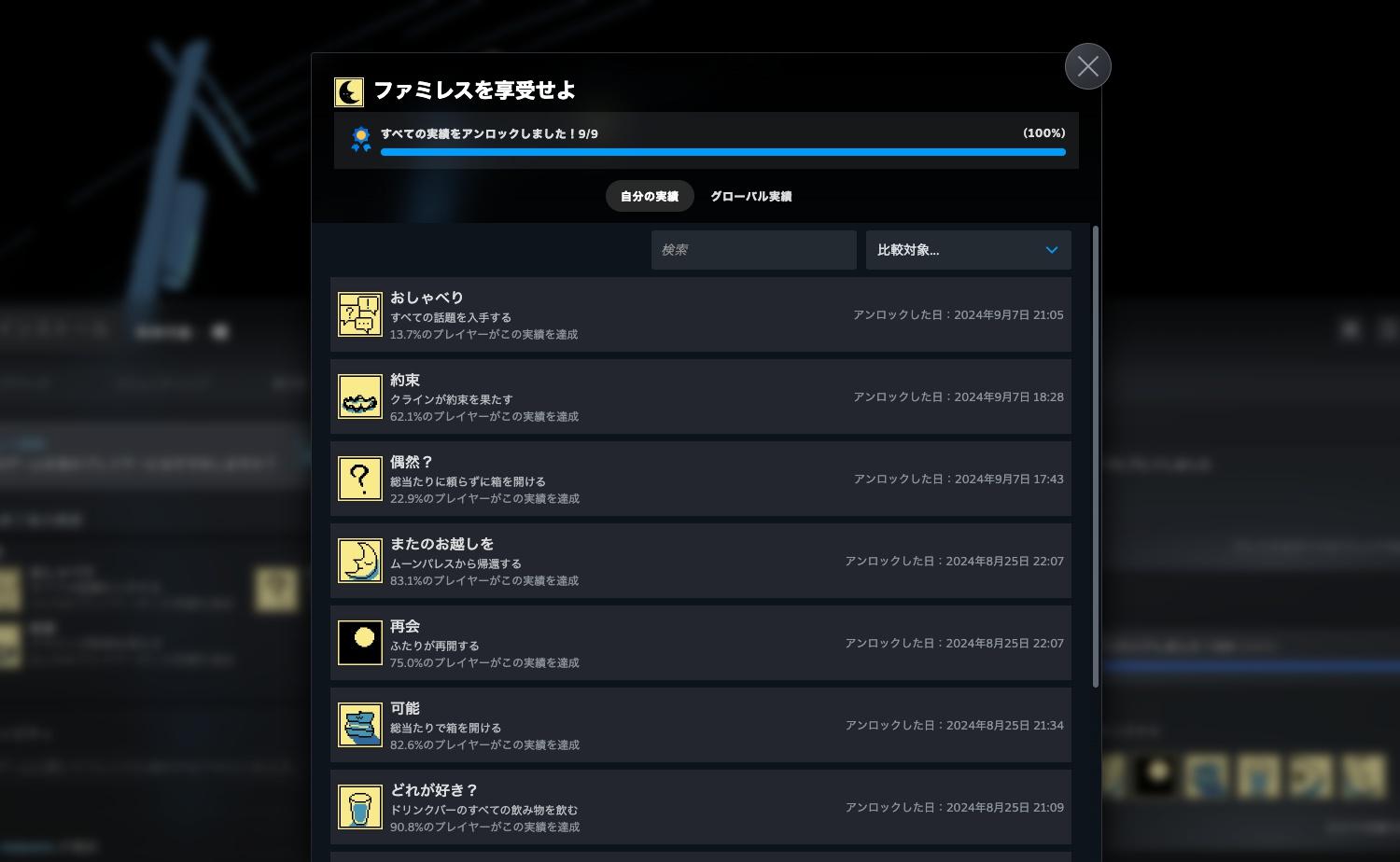
As for how I came across it... I first saw this game through a Let's Play on YouTube. Even though it was just a playthrough, I was deeply moved by the experience, and watching it became a cherished memory. The game’s soundtrack is available, and I often play it while studying or reading to help set the right mood.
For games like this, where the atmosphere and narrative leave a strong impression, I usually hold off on a second playthrough. But for this game, I couldn’t help but think, "How could I love it this much and not even own it myself?" Plus, while the version I watched was the web-released one, I heard there are extra conversations in the Steam version... and I was curious about them. Then, one night, I suddenly thought, "I really want to visit this diner myself!" So I impulsively bought it and played through it.
One of the appeals of this game is its compactness. It doesn’t take long to fully enjoy everything it offers.
I managed to achieve all the trophies, so here’s my summary and thoughts.
Summary
- Long ago, somewhere in the universe, a black, viscous sea was born. From that sea, 113 consciousnesses emerged. They migrated to the moon and became known as the “People of the Moon.”
- About 2,000 years ago, they discovered Earth. The People of the Moon, governed by the “Law of Non-Invasion: We Are Eternal,” are immortal and have watched over Earth ever since.
- The "Moon Palace," a teleportation relay for them to visit Earth, is located in another world. Due to its design, Earthlings can sometimes wander into it by accident.
- Typically, if someone does wander in, a kind member of the People of the Moon on duty at the Moon Palace erases their memory and returns them to Earth.
- But this time, various coincidences aligned... The person on duty was a bit clumsy, and a rogue member of the People of the Moon violated the “Law of Invasion” by misusing the Moon Palace. (Yes, let’s call it misuse.)
- As a result, the people who accidentally wandered in this time find themselves unable to return to Earth right away…
Thoughts
Midori-san’s "I love it" is written all over this.
- I love escape room games to begin with.
- I love the simple, nostalgic graphics.
- I love the straightforward game system.
- I love the mystery elements.
- There’s room for player imagination, but the game reveals almost all its mysteries, which is satisfying.
- I love the music.
- It gives me motivation for studying and working.
The protagonist of this game, Lase, is a great character who has made studying a habit. (I was about to write that it’s her hobby, but she says her hobby is stargazing during study breaks.)
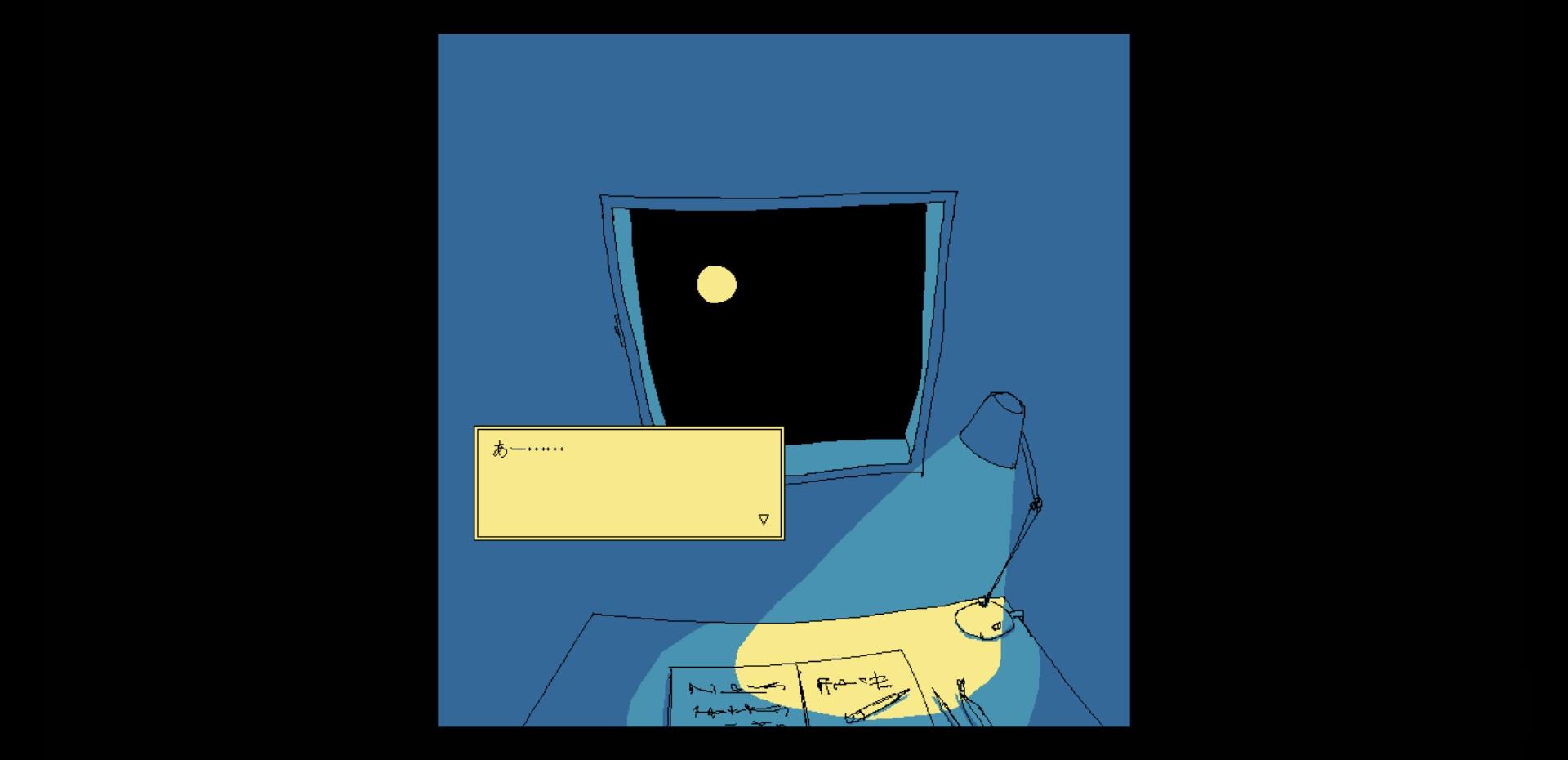
The vibe during her study scenes is just right. When I play the soundtrack from these scenes, I can easily get into study mode—it really helps. On the other hand, Garasupan-san is also a hard worker, and their dedication to their job gives me motivation too.
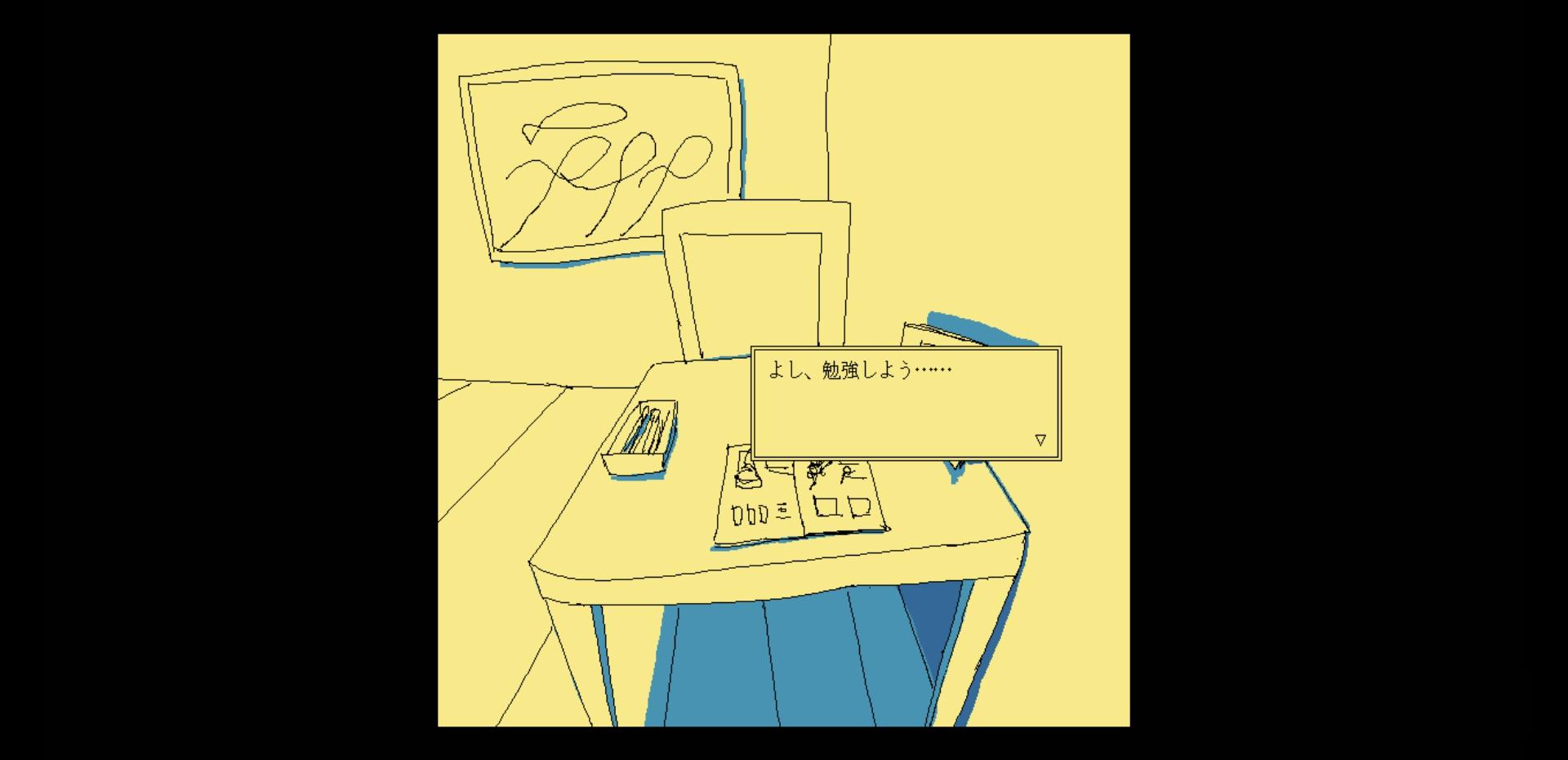
The game system is simple:
- Collect "topics."
- Use those "topics" to talk to corresponding characters, progressing the story or unlocking new dialogue.
It’s a very simple system, and I like it.
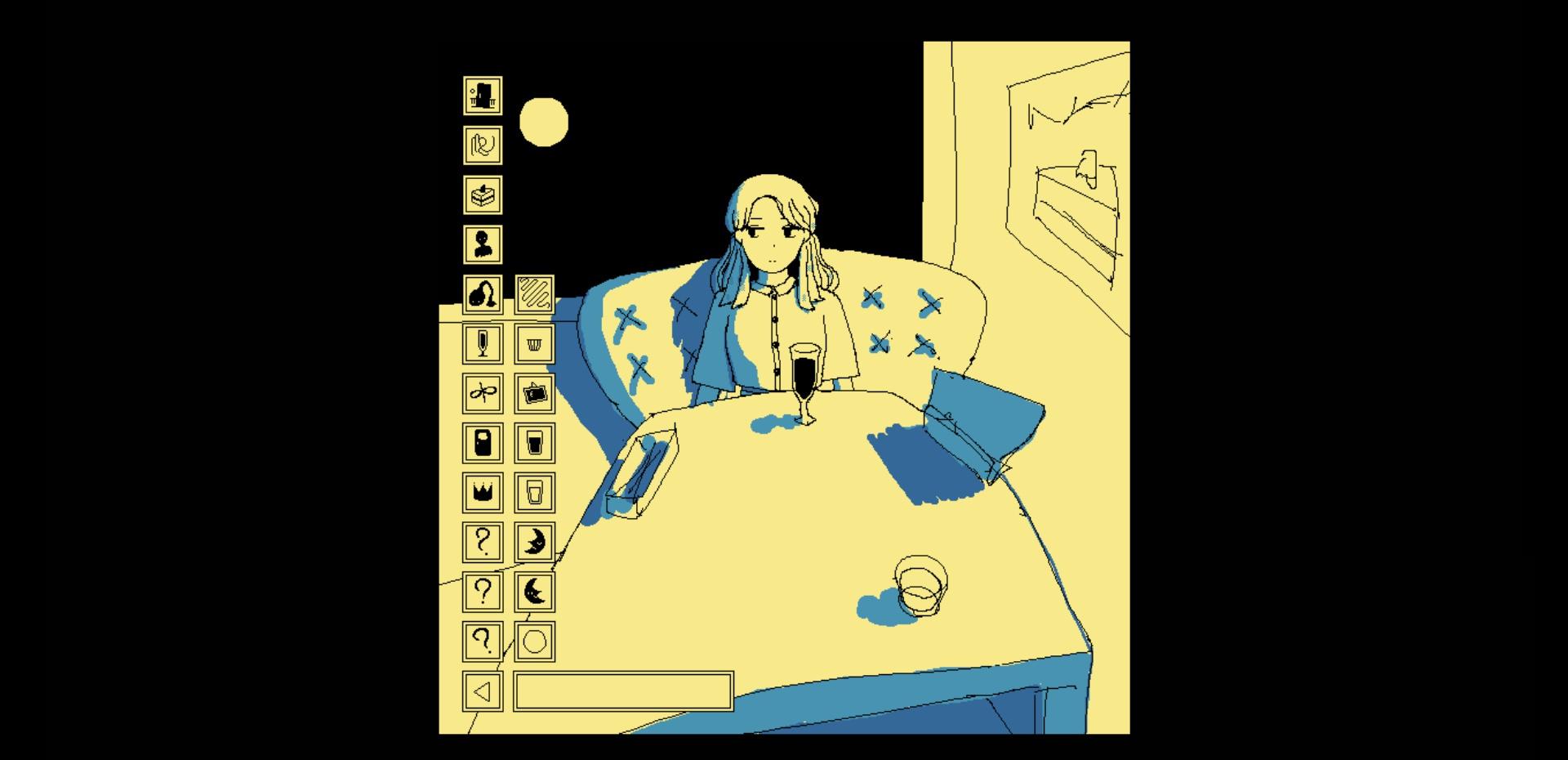
It Has Some Commonalities with SCE
This game shares similarities with one of Midori-san’s top 3 free games, "Sky High Chronos Endless" (SCE).
SCE also features escape elements, simple graphics, a mystery-filled story, and great music, with a straightforward game system. It’s almost identical to "Enjoy the Diner." If you enjoyed "Diner," I highly recommend SCE as well.
Reflecting on the similarities between "Diner" and "SCE," I realized something.
In both games, I found myself deeply immersed in their worlds. I think games with overly complex systems often turn into something more like "doing" a game rather than "enjoying" it. Instead of losing myself in the world of the game, I end up in a mode where I’m just solving the problems the system presents in the most efficient way possible.
In moments like that, "I" am outside the game, not inside it. It’s like solving a Rubik’s Cube—when I play a complex game, I feel like I’m outside, solving it from the outside, when what I really want is to be inside that Rubik’s Cube. When a game becomes nothing more than a problem-solving device, it loses something. I believe that the simpler the game system, the thinner the barrier between me and the game world, allowing me to immerse myself more deeply in its atmosphere.
That’s why I feel like my desire to "immerse myself in a beautiful world" matches well with "a simple game system."
In a recent post about studying English, I wrote something like this:
When we're playing a game, what we're really thinking about is how to crush the challenges efficiently.
(2024-08-24) The Path to Pre-1st Grade English Exam 2024-08 and the 100 Wonderful Moments
The phrase “crush the challenges efficiently” is another way of describing the “solving the game from the outside” feeling I mentioned here. As I wrote this reflection, I realized that there are games that don’t give me that feeling.
Some Trophies Are a Bit Annoying
I’m talking about the “Chatterbox” trophy.
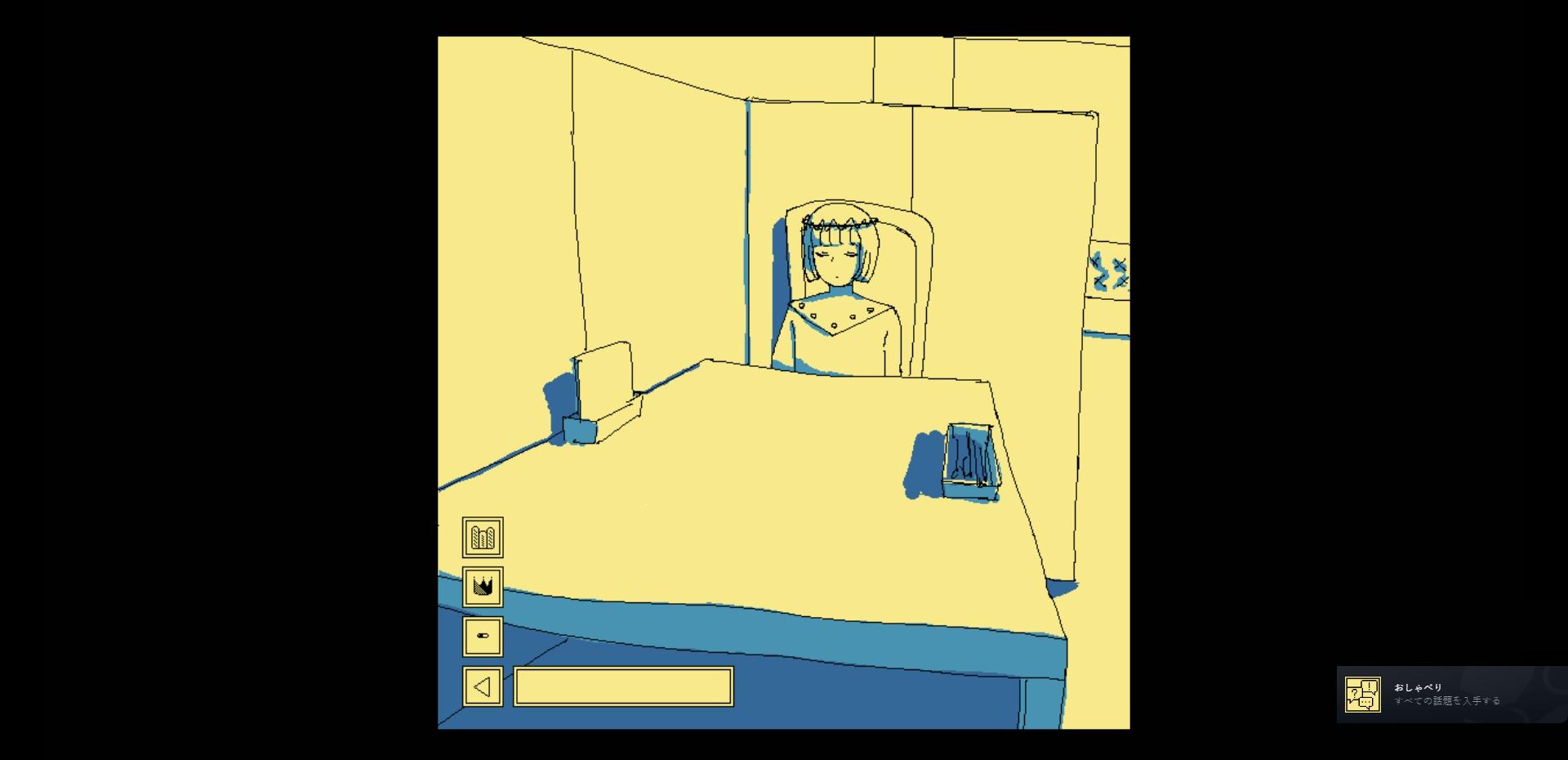
- Collect all "topics."
- Use all the "topics" to hear everything from everyone.
This trophy is a bit of a hassle due to the story branching and the fact that there’s only one save file. You need to pay attention to when you save and be mindful of the story branches.
I used this article as a reference:
Other Thoughts

- The "Illustration Gallery" that comes with the Steam version is great. I keep going back to read it again and again.
- Lase and her group aren’t “moon rabbits” but rather “moon crabs,” which means they’re Southern Europeans. There’s a scene in the Illustration Gallery where they’re having a meal, and it looks like something typical from that region.
- One line in Garasupan-san’s section of the Illustration Gallery—"By embracing and merging with the ideology, you overcome despair but lose a dear friend"—is incredibly poetic. While it’s not exactly the same, it reminds me of the way Murakami Haruki’s stories often create a sense that "the concepts born from the text link with reality." I love that feeling.
- Not that it matters much, but if I had played the web version, this would have made it into Midori-san’s Free Game Selection. But since I played the Steam version, it doesn’t count.
- These days, we often see indie games getting ported to Steam or Switch. If the times had been different, SCE might have ended up on Steam too.





